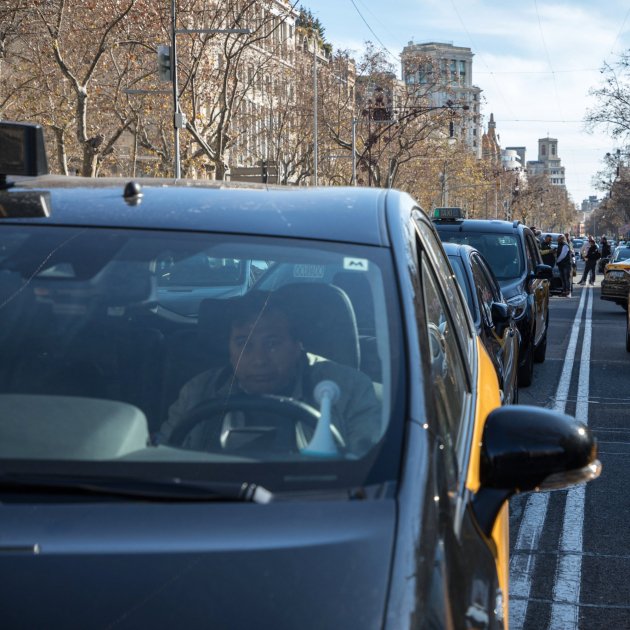The European Court of Justice (ECJ) has dealt a heavy blow to the Barcelona taxi sector by ruling that the intention of the Metropolitan Area of Barcelona (AMB), the public authority still chaired by the acting mayor of Barcelona, Ada Colau, to limit the number of licences for mobile app-based ridesharing services - like Uber or Cabify - is contrary to the law of the European Union. This is made clear by the judgment made public this Thursday morning, which follows the line marked by the recommendations that the advocate general of the court made public last December.
Specifically, the ECJ ruled on a complaint lodged by the company Prestige and Limousine, and considers that the rule that limits authorizations for this type of vehicle to one for every 30 taxis in the AMB constitutes a "restriction on the exercise of the freedom of establishment", defined as the right of citizens of the European Union to exercise economic activities and establish companies throughout the territory of the Union in accordance with the member state's establishment legislation, and in equality of conditions with respect to their nationals. However, the European court accepts the possibility that the AMB could demand an additional licence apart from the general one if it is for "the good management of transport, traffic and public space".
In other words, the ECJ accepts that these vehicles - called VTCs or Vehicles de Turisme amb Conductor in Catalonia - operating in metropolitan Barcelona must have an additional license, but rejects the intention to limit the number of these licenses to a ratio of only one for every thirty traditional taxi licenses granted by the same metropolitan body, the AMB. Although this ruling finds in favour of a traditional taxi company, it will mean an end to the limitations on platforms like Uber and Cabify that operate taxi services using the individual VTC licenses, and it is these services that are at the root of the conflict between these companies and the taxi sector. The ruling also notes that the companies linked to international online platforms "considered that the sole objective of the local law was to hinder their activity, with the sole purpose of protecting the interests of the taxi sector".
Waiting for taxis to react
Although the European Court of Justice's decision goes along the lines suggested in December by the court's advocate general, it lands like a bucket of cold water on the taxi sector. One of the most active organizations among taxi drivers, Élite Taxi, announced that it would soon report on the actions it will take in protest against the sentence. At the moment, new "very tough mobilizations in Barcelona next week" are not ruled out, according to the association of taxi drivers.
